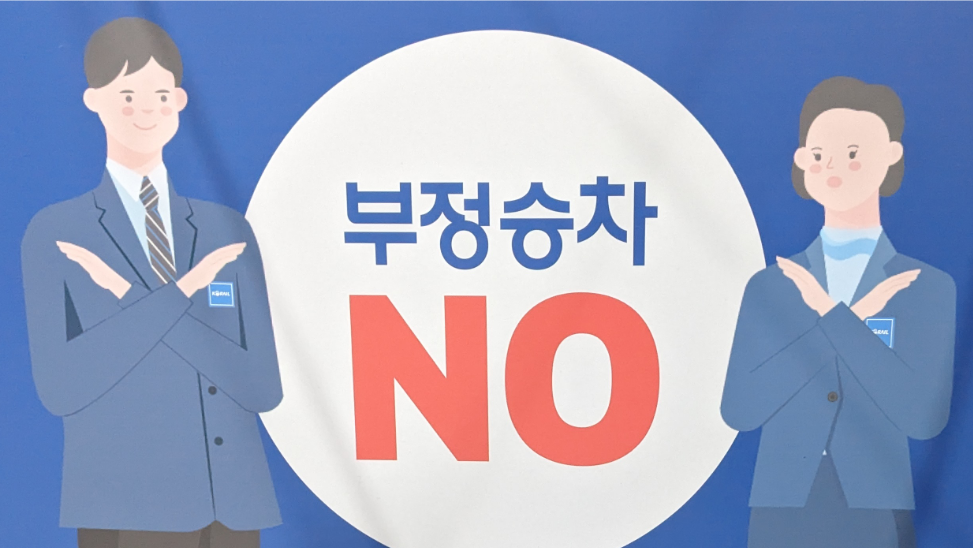Also, how long do you take a holiday/vacation for?
Brazil.
30 days + a lot of holidays.
At least 2 years for sickness if I’m not mistaken.I might be wrong, you probably only get 20 in the way leave days are counted outside of Brazil. In most other countries days off don’t count weekends, so a month of holidays is 20 days off.
Every single company I worked in Brazil gave a one month holiday that you could split at most in two, i.e. the minimum holiday you could take was 2 weeks. Whereas here in Europe every company I worked for gave me some number of days that you can take like you want, e.g. there’s a public holiday on Friday? Take the next Monday for very an extended weekend, or use 4 days to have a 9 day holiday.
It’s 30 days, but weekends count. Recently the law was amended to disallow scheduling vacations to start on a Friday because of that. It can be taken in full, or 15+15, or 10+20, or 10+10+10.
You’re missing my point, when people in Europe say they get 30 days they mean 30 “actual days where they were supposed to be working” off, not counting weekends. So a month is only really 20 days. That was one thing that caught me by surprise when I moved here, and it makes a difference when comparing across different countries, because they can’t tell you how many days off using your numbering because it depends on when they take their days off, e.g. there’s a public holiday on Monday, so you take Tuesday -Friday off (which only uses 4 days) but you have 9 consecutive days off (from Saturday to the Sunday after the first one). But it’s easy to convert your 30 days into working days, you essentially divide by 7/5, and you get that you only have approximately 21 days (where you should be working) off a year.
USA, CA, civil service, IBEW. I’m between 5 and 15 years (different PTO for different service lengths).
15 days vacation, all federal plus 5 floating holidays, and 10 sick days.
It’s 10 days vacation between 1 and 5 years, and 20 after 15.
fuck man that is EMBARRASSING for a union of any sort.
It’s city work.
what does that mean?
literally this week I overheard 2 ladies talking on the bus about getting in with City of Toronto as cleaners, which would be an upgrade. They were both public school cleaners. Talking about how they spend their existing 6 weeks of vacation. One at a school hosting summer school and camps so the work never stops; the other at a school where they are made to take the whole summer off by default.
One mentioned being a 20+ year, the other was a fairly recent hire from the sounds of it. The lifer was committed to the school board, but the junior was obviously really interested in getting in with the City if she could swing it. Because you get MORE with the city. But their hiring process is insane.
CUPE local 79 FTW apparently kicking IBEW ass.
IBEW you gotta change your name. get with the times.
That means there are 20,000 workers from various crafts who all share the same vacation policy. It’s not the type of thing that comes up in department-level union negotiations.
IBEW bud from the other corner of the country! To be fair, I’m not at 5 years yet, but I get 4 float days, 10 vacation, 7 sick days, unsure what it’s like for normal hourly workers but as a shift worker I work any holidays on my schedule. It’s hilariously bad, I only semi-joke when I say I’d like to go on strike from my own union to make it actually work for me.
Oh, and despite working well over 400 hours of overtime, none of that translates into extra vacation time. Yet corporate is flabbergasted at poor retention rates.
Our shift workers have the option to work on holidays for 2.5x. if the observed holiday is on their rdo they get a banked holiday. If they take it off they get normal 1x holiday pay
USA, WA, IBEW. Less than 5 years, but ours doesn’t change until 10 years(? I think I need to look this up).
20 days PTO accrual in a year, 2 personal holidays. No sick days.
I believe ours goes up to 28 days/year once at 20years with the company? It takes a lot for us
UK, 25 days annual leave which is the standard minimum plus bank holidays
a few years ago, my friend got a remote IT job in the UK (from canada) and the VERY FIRST THING they started with upon hiring was planning the time off in relation to other people. it was so shocking to us, neither of us nor any of our friends had ever heard of this before. Here, people have so little time off that the employer can just coast on everyone working a little harder while their colleague is away a little bit here n there. But when you have people with 6-12 weeks off every year you do start to need to coordinate.
Standard question for any job I’ve had, it’s a position of strength for the new employee as they have to honour them as the dates were confirmed before they joined. If you wait till you are in the door you may not get them as others might already have them booked.
Germany 30 days
Plus basically unlimited sick days
Somewhat true. After six weeks you will get paid by the health insurance (around 70% of your paycheck).
Ontario, Canada.
Employees with less than five years of employment are entitled to two weeks of vacation time after each 12-month vacation entitlement year. Employees with five or more years of employment are entitled to three weeks of vacation time.
If you read the link you will find the employer is allowed to pay out your vacation time as a % of pay. This is very common especially in lower wage sectors. You are then supposed to save up the money yourself to pay yourself for vacation when you take time off. In effect, you don’t get any paid vacation.
edit: I’ll also add that you have no right to select WHEN you take your vacay. A friend of mine worked in a factory that shut down for 2 weeks in august for maintenance, painting, service the machines etc. So everyone had to take their vacation during that time; no choice. That is unusual but not prohibited.
https://www.ontario.ca/document/your-guide-employment-standards-act-0/vacation
9 public holidays
https://www.ontario.ca/document/your-guide-employment-standards-act-0/public-holidays
Employees are entitled to up to 3 sick leave days per year once they have worked for an employer for at least 2 consecutive weeks.
This is new since COVID. Which at the time it was introduced, mandated 10 days away from work.
https://www.ontario.ca/document/your-guide-employment-standards-act-0/sick-leave
There are also other kinds of leave like parental, bereavement and such, if you click any links you can see that in the sidebar. Nothing is very lush.
Everything is prorated to a 40 hour work week. Breaks don’t count. So if you work 20 hours per week, you are entitled to half of what is specified.
Any employer can offer more than this, of course. Professionals and higher valued workers can get more. Unions or individuals can negotiate. But a lot of people only get the minimum. Or less. Enforcement is minimal. It’s the honor system.
There are also exceptions like federal workers (government, airlines etc). And farm workers, who basically have zero rights of any sort.
Also when they say “weeks” they do not include weekends. You could theoretically take 3 weeks off but you are not paid for weekends. If you did it piecemeal you would have in fact 15 days. 3 sets of 5.
This is what I would expect though? Like if I work a m-f and not weekends, I’d expect to only be paid for the time I would’ve been working.
I agree with you. My problem is with companies saying you get 2 weeks vacation. It’s really 10 days. Just started it in actual days paid. For instance if I take those days off in small chunks of 3 days at a time. I can do that only 3 times with one day left. Not 4 blocks with two more days left. I rarely take an actual week off. I just want it to be clearer.
US - 0
None at all, no sick, no holiday, no federal holiday, absolutely no PTO. If I don’t go in I simply don’t get paid.
Same and same.
Canada. Union. IT. Mixed Gov/corp contract.
100% WFH (anywhere, but within the country if you’re on the gov stuff)
22 holiday-days a year. But given the 9x9 fortnight means an extra day off within the paycheque, timed around stats it means 7 weeks.
Generous supplemental medical and dental and vision plan, workday ends precisely at 4:39 and no one expects you to stay a millisecond after; but we stay to either finish or mothball a task so it’s an easier pickup. Evenings and holidays are fucking sacred and you won’t get contacted unless it’s a break-glass all-hands event.
The job is too much fucking Ansible and not enough real work, but I joined because I know the staff and it’s a really great and cohesive team. New openings only when someone retires, and with luck I could end up sailing the world on half pay for life like the guy whose seat I took over.
Germany.
- 30 vacation days.
- 16 public holidays.
- Unlimited sick days (6 weeks paid by employer, the rest by the health insurance, at a lower rate)
These are all paid,
all working dayssome public holidays may fall on the weekend.I started this year with 9 vacation days from last year, I had to take them before the end of March, so I just randomly took a couple of weeks in Feb and Mar.
I usually align my vacation days with my kids school holidays, but I take 2-3 weeks continuously in the summer, usually late August.
It’s a bit misleading to count the public holidays which are always on a Sunday. The normal maximum you can get with days that can fall on a weekday is 14 in the city of Augsburg.
And the number of sick days is not unlimited. The cause for the illness/injury must not be your fault. And then it’s limited to six continuous weeks for the same cause. It’s a bit more complex, but the gist is that it’s not unlimited.
It’s not limited to 6 weeks, you just need a doctor to tell your company you need longer (and your compensation is lowered iirc). Someone who gets run over by a lorry and has to stay in hospital for months doesn’t lose their job, like they would in the US.
Public holidays vary per Bundesland. Berlin has the fewest!
The part about not losing your job is true. The six weeks are mandated by law, it’s how long your employer has to pay your full salary. After that your health insurance will pick up the bill, paying “Krankengeld”. This is limited to 78 weeks within a three year span. Krankengeld is limited to 70% of your income before taxes.
US, I just got to offer stage with a company and the PTO was 10 days… I’m originally from the UK, and previously worked with startups from other countries, so this is shocking to me. More infuriating was the response from my friend group when I complained about it. “Yeah that’s pretty standard” and I’m like “ok but it’s also shit?”
There’s been a continuous movement in the US to reduce workers rights since the 70’s. I offer 10 sick (mandatory by oregon) and 10 vacation, and it’s considered generous. I also pay full health care, which is considered ridiculously good.
1947 marked a major turning point for workers rights in the US when they outlawed solidarity between unions
https://en.wikipedia.org/wiki/Taft–Hartley_Act
The US and France currently both have around 10% union workforce, France is a million times more effective at striking because unions strike together & nonunion workers don’t cross strike lines, coordinated and targeted.
USA, no paid time off.
But I make enough to take off a few weeks a year anyway.
Spain:
12 national holidays.
29 vacation days.
4 sick days without a doctor signed medical leave. As many as I need with a medical leave.
Canada - Four weeks vacation. Five and a half years with the company.
To explain for those not in Canada… It is usual in Canada for a job to start with a low level of PTO an then add a week every few years that you stay with the company. This usually is capped at 6 weeks.
You can, of course negotiate an amount of PTO when you accept a job. Someone coming into a more senior position wouldn’t expect to start with just two weeks of PTO.
Thanks for adding context.
You usually don’t get holidays for the first year. After that you start with two weeks. It usually takes much longer to get another week and you might get 4 weeks after 10 years, 15 years in many cases.
Fortunately for me, my bosses respect me and when they couldn’t get me the pay bump I wanted they gladly hooked me up with time off instead.
I have never heard of not getting holidays for the first year. Not sure they could even legally do that 🤔
Australia: 20 days PTO by law, 13 public holidays (depends on the state, but no less than 10 which are national), 10 separate days for use when sick or caring for someone who is sick. There’s more entitlements for different scenarios but this is pretty much the baseline.
US, unlimited vacation and PTO and the major holidays off. We’re encouraged to take off a minimum of 1wk per quarter. Definitely unique in the states. I work for an extremely large startup. Don’t know how long this vacation plan will last. lol.
Til it’s bought by a VC. 😉
Oh it’s worse than that already. We’re owned by a PE group.
USA. 4 weeks. Gotta love a good union!!!














